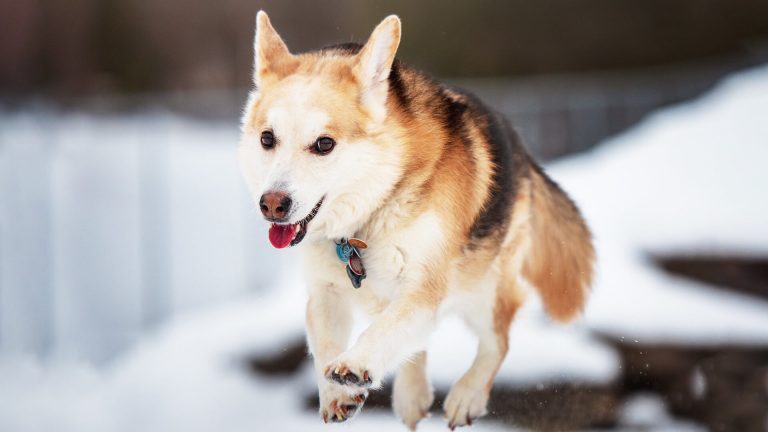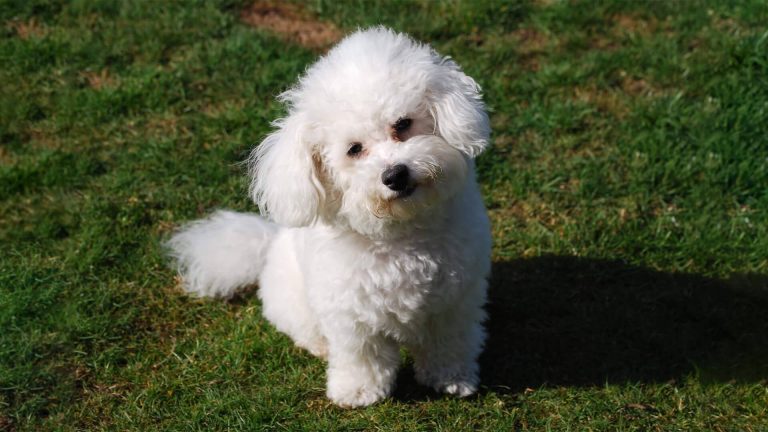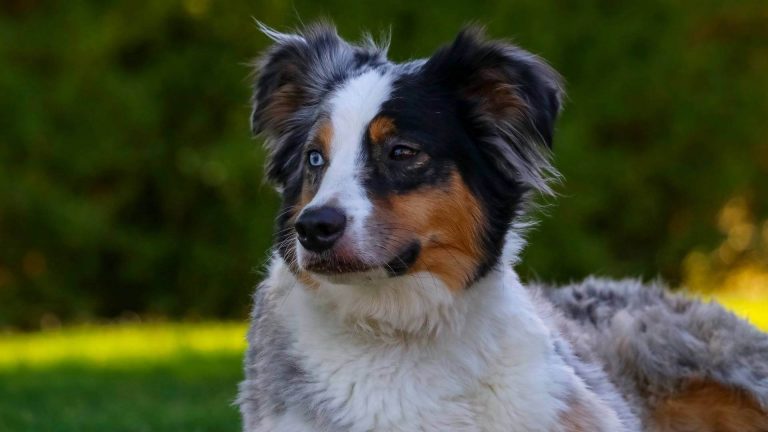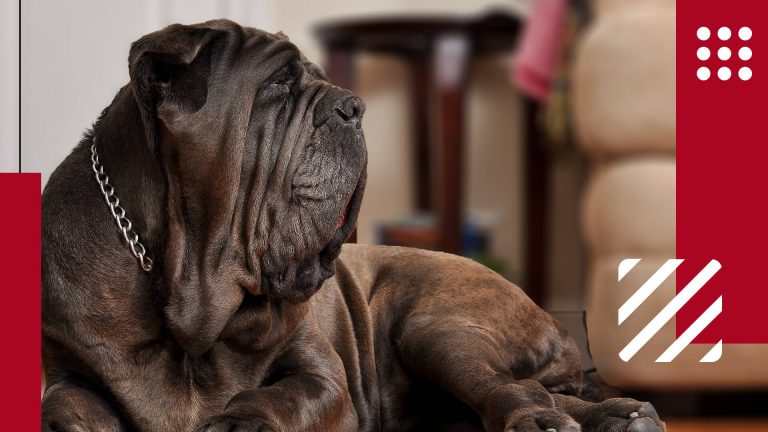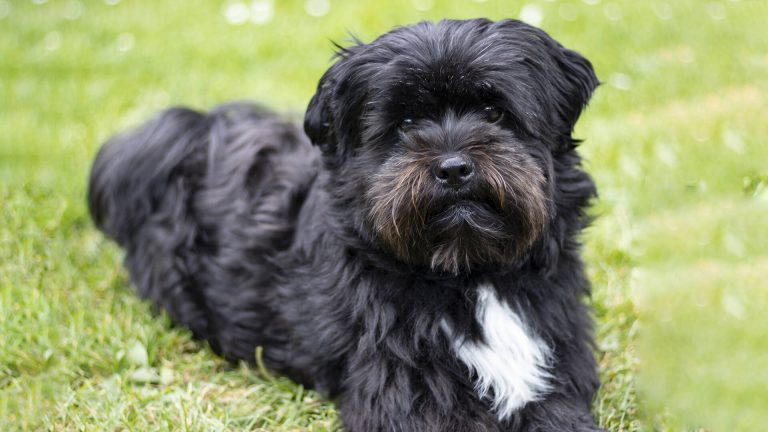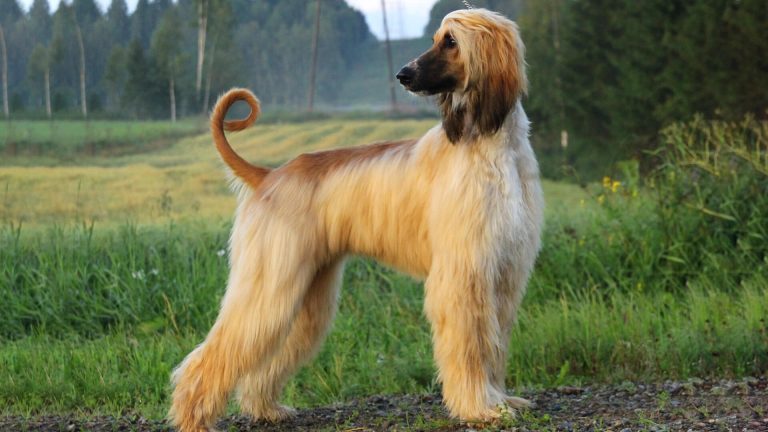The Basset Hound is a breed of dog that was developed in France in the 19th century. It is believed to have descended from the St. Hubert Hound, a breed that was used for hunting deer and other large game in medieval Europe. The Basset Hound was bred to be a short-legged, slow-moving hunting dog that could follow the scent of the game over long distances. They were also prized for their loud, deep voices, which made them effective at alerting their handlers to the presence of the game. Today, Basset Hounds are still used for hunting, but they are also popular as family pets because of their friendly, laid-back personalities.
Distinctive Features of Basset Hound
| Breed Name | Basset Hound |
| Lifespan | Up to 13 years |
| Size | Up to 15 inches (at the shoulder) |
| Weight | 50-65 pounds (male), 45-60 pounds (female) |
| Coat | Short, smooth, and dense |
| Color | Various colors including tri-color (black, white, and tan) and lemon and white |
| Health risk | Moderate |
| Unique trait | Long ears, droopy eyes, and a prominent sense of smell |
| Famous for | Being scent hounds and excellent trackers |
| Temperament | Gentle, friendly, and laid-back |
| Maintenance | Moderate |
| Adaptability | High |
| Behavior | Generally good, but supervision is recommended |
| Personality | Relaxed, patient, and may have a moderate energy level |
| Social | Generally good with other dogs and pets if properly socialized |
Basset Hounds are known for their long, low-slung bodies and short legs. They have distinctive, mournful-looking faces with long, floppy ears and short, smooth coats. They come in a variety of colors, including tricolor (black, tan, and white), red and white, and lemon and white.
Basset Hounds typically live for about 10 to 12 years. They are a medium to large breed, with males weighing between 50 and 65 pounds and females weighing between 45 and 60 pounds. Despite their size, they are known for being gentle and easy-going, making them well-suited to life as a family pet.
In terms of distinctive features, Basset Hounds are known for their keen sense of smell, which they use to track game when hunting. They also have a deep, throaty bark that can be heard from a distance. They are a loyal and affectionate breed and are known for being easy to train.
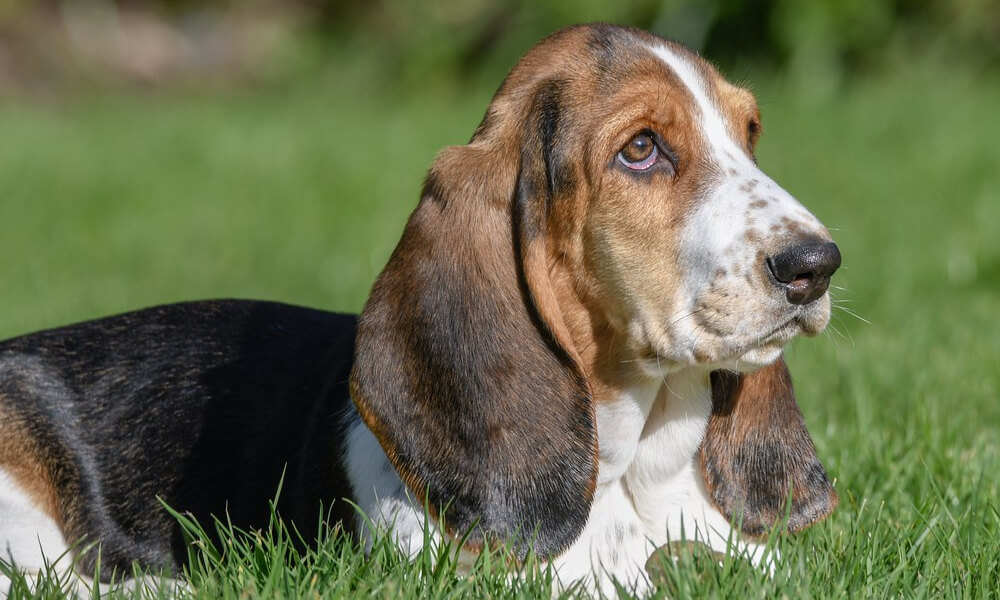
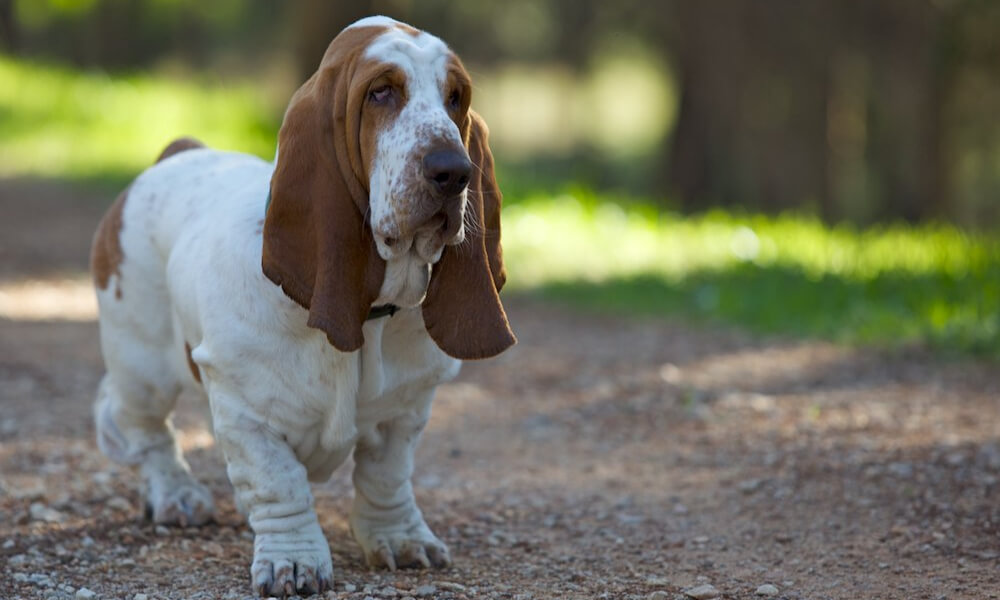
How to Take Care of Pet Basset Hound?
Caring for a pet Basset Hound involves several key aspects to ensure their health and well-being. These adorable and laid-back dogs have specific needs that should be met for their overall happiness and comfort. Here are some guidelines for taking care of a pet Basset Hound:
How to Set Up Habitat for a Pet Basset Hound?
If you are setting up a habitat for a Basset Hound, it's important to consider the needs of the breed. Here are some things to keep in mind:
- Space: Basset Hounds are a medium to large breed, so they will need plenty of space to move around and play. Make sure you have a large enough yard or living space for your Basset to run and play.
- Shelter: Basset Hounds will need a place to rest and take shelter from the elements. A dog house or kennel is a good option, as long as it is large enough for your Basset to comfortably stand up, turn around, and lie down.
- Exercise: Basset Hounds are a fairly active breed and will need regular exercise to stay healthy and happy. Make sure you have a fenced-in area where your Basset can run and play, and take them for regular walks or runs to keep them in good shape.
What to Feed Your Pet Basset Hound?
It's important to feed your Basset Hound a high-quality, balanced diet to support its overall health and well-being. Here are some general guidelines for feeding your Basset Hound:
- Choose a high-quality dog food: Look for a commercial dog food that is formulated specifically for Basset Hounds or for large breed dogs. Look for a brand that uses high-quality proteins, such as chicken or lamb, as the main ingredient, and avoid brands that use by-products or fillers.
- Consider your Basset's age and activity level: Puppies, seniors, and active adult dogs have different nutritional needs. Consult with your veterinarian or a pet nutritionist to determine the appropriate amount and type of food for your Basset.
- Measure portions: It's important to control your Basset's food intake to prevent obesity. Use a measuring cup to portion out the appropriate amount of food for your Basset based on their age, size, and activity level.
What to Avoid Feeding Your Pet Basset Hound?
There are certain human foods that can be harmful to dogs, and it's important to avoid feeding these foods to your Basset Hound. Here are some common human foods to avoid feeding your Basset:
- Chocolate: Chocolate contains theobromine, which can be toxic to dogs. Even small amounts of chocolate can cause vomiting and diarrhea in dogs, and large amounts can be lethal.
- Grapes and raisins: Grapes and raisins can cause kidney failure in dogs. Even a small amount can be toxic, and the symptoms may not appear for several days.
- Onions and garlic: Onions and garlic contain compounds that can damage a dog's red blood cells and cause anemia. Symptoms may not appear for several days after ingestion.
- Avocado: Avocado contains persin, which can cause vomiting and diarrhea in dogs. The fruit, leaves, seeds, and bark of the avocado plant can all be harmful to dogs.
- Coffee and Tea: Coffee and tea are not recommended for Basset Hounds. These beverages contain caffeine, which can be toxic and harmful to dogs.
- Yeast: Feeding yeast to a Basset Hound is not recommended, as it can lead to digestive issues and potential allergic reactions.
- Citrus: Citrus is generally not recommended to feed citrus fruits, such as oranges or lemons, to Basset Hounds due to their sensitivity to stomach upset.
- Alcohol: Alcohol can be toxic to dogs and can cause vomiting, diarrhea, difficulty breathing, coma, and even death.
- Chives: Chives should be avoided for Basset Hounds as they contain compounds that can be toxic to dogs if ingested.
- Salt and salty foods: Avoid feeding your Basset Hound salt or salty foods as excessive salt intake can lead to health issues like dehydration and kidney problems.
- Uncooked eggs: Feeding uncooked eggs to a Basset Hound is not recommended due to the risk of salmonella and biotin deficiency.
Brushing, Bathing & Grooming Needs of Pet Basset Hound
Basset Hounds are a relatively low-maintenance breed when it comes to grooming, but they do require some basic care to keep them looking and feeling their best. Here are some guidelines for grooming your Basset Hound:
- Brushing: Basset Hounds have a short, smooth coat that requires minimal grooming. They should be brushed once or twice a week to remove loose hairs and keep their coat looking clean and shiny. Use a slicker brush or a hound glove to remove tangles and mats.
- Bathing: Basset Hounds only need to be bathed every few months, or as needed if they get particularly dirty. Use a mild dog shampoo and be sure to rinse thoroughly to prevent dry, itchy skin.
- Ear care: Basset Hounds are prone to ear infections due to their long, floppy ears, which can trap moisture and bacteria. Clean your Basset's ears weekly to prevent ear infections. Use a gentle ear cleaner and be sure not to go too deep into the ear canal.
- Nail care: It's important to keep your Basset's nails trimmed to prevent them from becoming too long and causing problems. If your Basset's nails are clicking on the floor when they walk, they are too long. Use a nail clipper specifically designed for dogs, and be careful not to cut the quick (the blood vessel in the nail).
Health Concerns of Pet Basset Hound
Like all breeds, Basset Hounds are prone to certain health concerns. Some common health issues that Basset Hounds may experience include:
- Hip dysplasia: Hip dysplasia is a common issue in large breed dogs, including Basset Hounds. It occurs when the hip joint is not properly formed, leading to joint pain and mobility issues.
- Osteochondritis Dissecans (OCD): Osteochondritis Dissecans (OCD) is a joint disorder in Basset Hounds that causes cartilage and bone to separate and fragment.
- Thrombopathia: Thrombopathia is a bleeding disorder in Basset Hounds characterized by dysfunctional platelets, leading to excessive bleeding and bruising.
- Wobbler Syndrome: Wobbler Syndrome is a neurological condition in Basset Hounds that results in spinal cord compression, leading to instability and coordination issues.
- Seborrhea: Seborrhea is a skin condition in Basset Hounds characterized by excessive oil production, leading to flaky skin and itchiness.
- Intervertebral Disc Disease: Basset hounds are prone to intervertebral disc disease, a spinal condition that affects the discs between their vertebrae.
- Gastric Torsion: Basset hound experienced gastric torsion, a life-threatening condition where the stomach twists, requiring immediate veterinary intervention.
- Entropion: Basset hound diagnosed with entropion, a condition where the eyelid rolls inward, requiring corrective surgery for relief.
- Ectropion: Ectropion is a common eye condition in basset hounds where the eyelids turn outward, leading to eye irritation and discomfort.
- Obesity: Basset Hounds are prone to obesity due to their slow metabolism and love of food. It's important to control their food intake and provide them with regular exercise to help prevent obesity and its associated health risks.
- Ear infections: Basset Hounds are prone to ear infections due to their long, floppy ears, which can trap moisture and bacteria. It's important to keep your Basset's ears clean and dry to prevent ear infections.
- Eye problems: Basset Hounds are prone to eye problems such as cherry eye, progressive retinal atrophy, and glaucoma. Regular eye exams can help detect these issues early on and prevent further complications.
- Bloat: Bloat is a serious condition in which the stomach becomes distended and twisted, cutting off the blood supply to the rest of the body. It can be life-threatening if not treated promptly.
Training and Playing with Pet Basset Hound
Basset Hounds are intelligent and can be easy to train, but they can also be stubborn at times. It's important to start training your Basset as a puppy to establish good behavior early on. Here are some tips for training and playing with your Basset Hound:
- Use positive reinforcement: Basset Hounds respond well to positive reinforcement, such as treats, praise, and affection. Avoid using punishment or physical force to train your Basset, as it can lead to negative associations and may make training more difficult.
- Keep training sessions short and enjoyable: Basset Hounds have short attention spans, so it's important to keep training sessions short and fun. Use a variety of treats and rewards to keep your Basset engaged, and be sure to praise them for good behavior.
- Socialize your Basset: It's important to expose your Basset to a variety of people, places, and situations to help them become well-adjusted and confident. This will make them easier to train and more enjoyable to be around.
- Exercise your Basset: Basset Hounds are a fairly active breed and will need regular exercise to stay healthy and happy. Take your Basset for regular walks or runs, and provide them with plenty of space to run and play in a fenced-in area.
Other Pets to Keep or Avoid with Basset Hound
Basset Hounds are generally good-natured and get along well with other pets, but it's important to consider the personality and needs of all pets in the household when deciding whether or not to bring a new pet home. Here are some things to consider:
- Compatibility: Consider the compatibility of the different pets in your household. For example, a Basset Hound may get along well with a cat, but may not be well-suited to living with a smaller, more energetic dog.
- Space: Make sure you have enough space for all of your pets to live comfortably. Basset Hounds are a medium to large breed and will need plenty of space to move around and play.
- Exercise: Make sure you have the time and energy to provide adequate exercise for all of your pets. Basset Hounds are a fairly active breed and will need regular walks or runs to stay healthy and happy.
- Training: If you are introducing a new pet to a household with an existing Basset Hound, make sure both pets are well-trained and well-behaved. This will help ensure a smooth transition and minimize any potential conflicts.
Facts About Basset Hound
Here are some interesting facts about Basset Hounds:
- Basset Hounds are known for their keen sense of smell, which they use to track game when hunting. In fact, they are considered one of the top scent hounds in the world.
- They were originally bred to hunt small game, such as rabbits and hares, in the forests of France.
- Basset Hounds have short legs and a low center of gravity, which makes them well-suited to following the scent of the game over rough terrain.
- They are a relatively slow-moving breed and are not known for their agility or speed.
- Despite their slow movements, Basset Hounds are known for their loud, deep voices, which they use to alert their handlers to the presence of the game.
- Basset Hounds are a popular breed for families due to their friendly, laid-back personalities and their ability to get along well with children and other pets.
- They are prone to obesity, so it's important to control their food intake and provide them with regular exercise to keep them at a healthy weight.
What It's Like to Keep a Basset Hound as a Pet?
Basset Hounds are a popular breed for families due to their friendly, laid-back personalities and their ability to get along well with children and other pets. They are intelligent and can be easy to train, but they can also be stubborn at times. It's important to start training your Basset as a puppy to establish good behavior early on.
Basset Hounds are a fairly active breed and will need regular exercise to stay healthy and happy. They are not known for their agility or speed, but they do enjoy going for walks and runs and playing in a fenced-in area. They are also prone to obesity, so it's important to control their food intake and provide them with regular exercise to keep them at a healthy weight.
Basset Hounds have a deep and melodious howl or baying sound that is unique to the breed. They may vocalize when they are bored, lonely, or trying to communicate something. It's important for owners to be aware of this trait and consider their living situation and neighbors' tolerance for noise.
Frequently Asked Questions About Basset Hound
Here are some frequently asked questions about Basset Hounds:
Are Basset Hounds good with children?
Basset Hounds are generally good with children and are known for their friendly, laid-back personalities. However, as with any breed, it's important to supervise any interactions between children and dogs and teach children how to treat pets with respect and kindness.
Do Basset Hounds shed a lot?
Basset Hounds have a short, smooth coat that requires minimal grooming. They shed a moderate amount, but regular brushing can help control shedding and keep their coat looking clean and shiny.
Are Basset Hounds good apartment dogs?
Basset Hounds can adapt to apartment living as long as they get enough exercise. They are a relatively inactive breed, so they don't require a lot of space to run and play. However, they do need regular walks or runs to stay healthy and happy.
Are Basset Hounds prone to obesity?
Basset Hounds are prone to obesity due to their slow metabolism and love of food. It's important to control their food intake and provide them with regular exercise to help prevent obesity and its associated health risks
Do Basset Hounds have any special health concerns?
Basset Hounds are prone to certain health concerns, including obesity, hip dysplasia, eye problems, ear infections, and bloat. Regular veterinary check-ups and a healthy diet and exercise routine can help prevent or manage these health issues.

